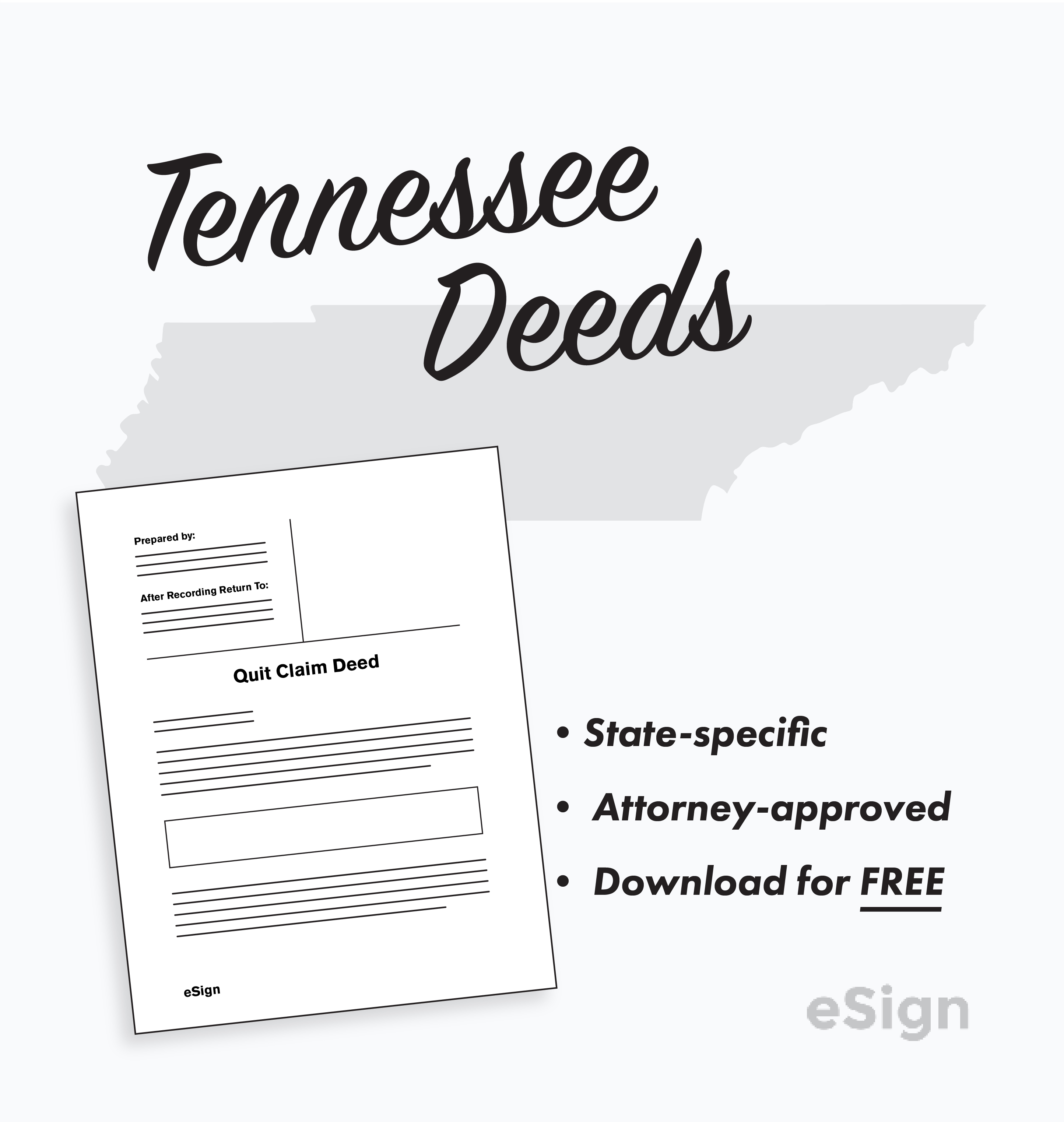By Type (4)
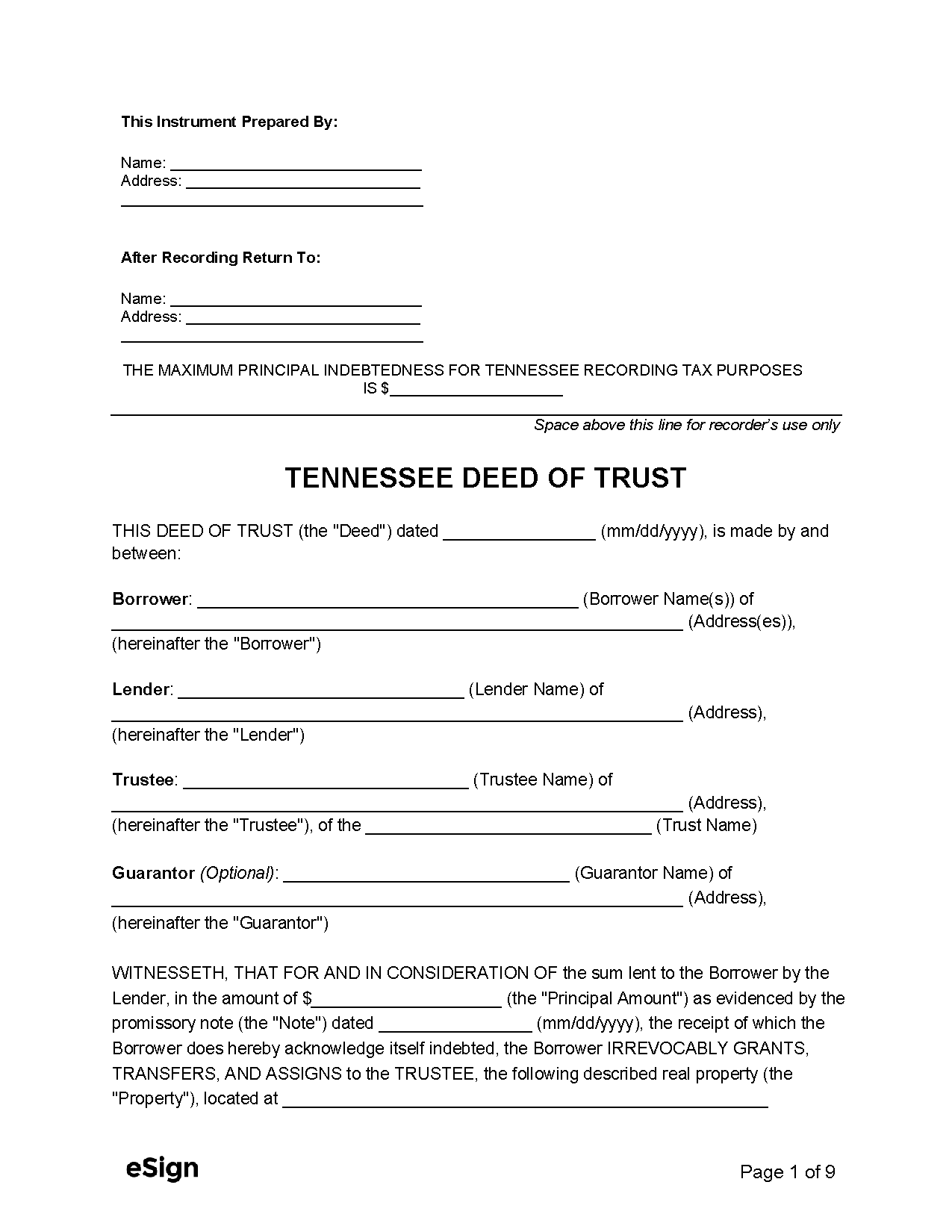 Deed of Trust – A deed that transfers title to a third-party trustee to retain until a buyer pays off a home loan. Deed of Trust – A deed that transfers title to a third-party trustee to retain until a buyer pays off a home loan.
|
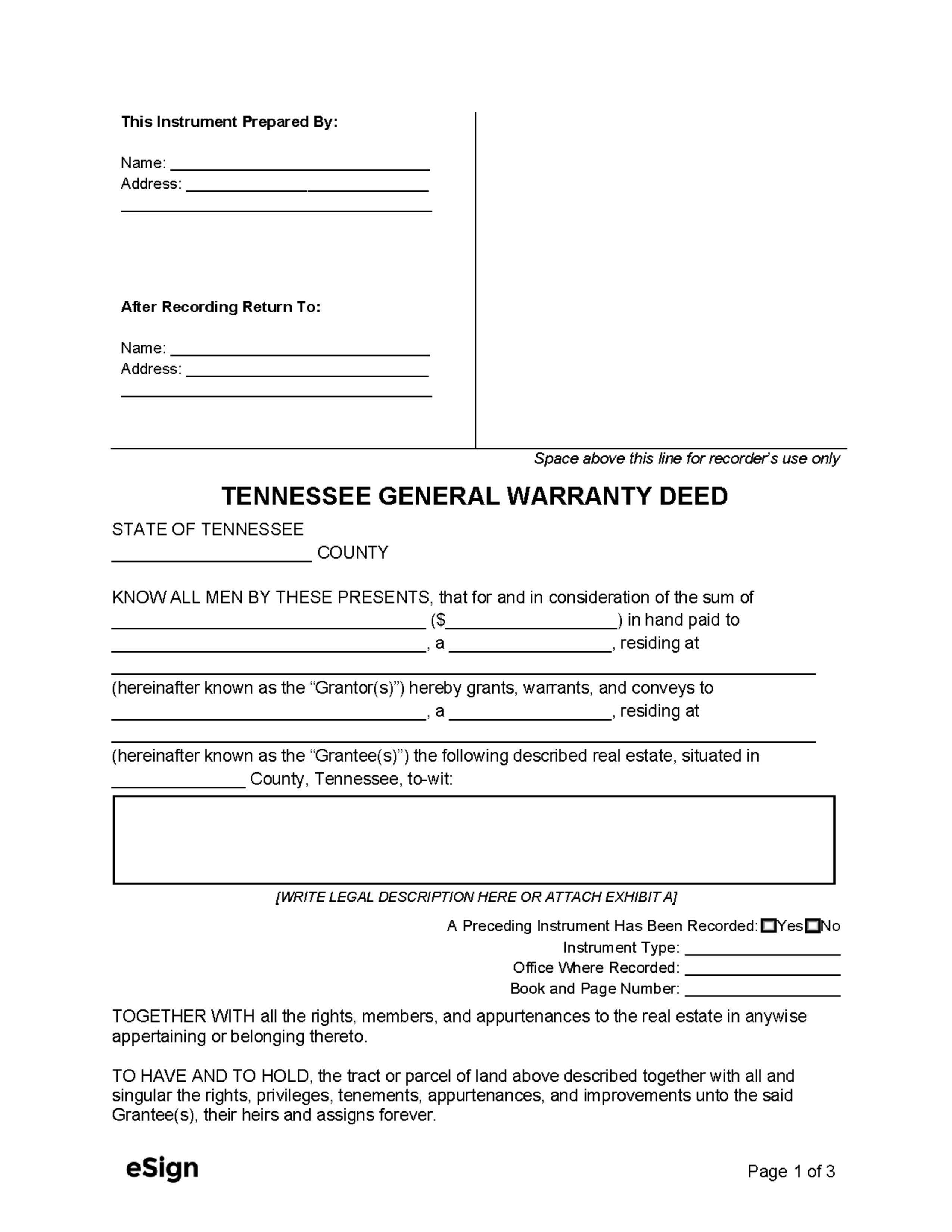 General Warranty Deed – Guarantees that the grantor is the property’s owner and will defend the title against current and past claims. General Warranty Deed – Guarantees that the grantor is the property’s owner and will defend the title against current and past claims.
|
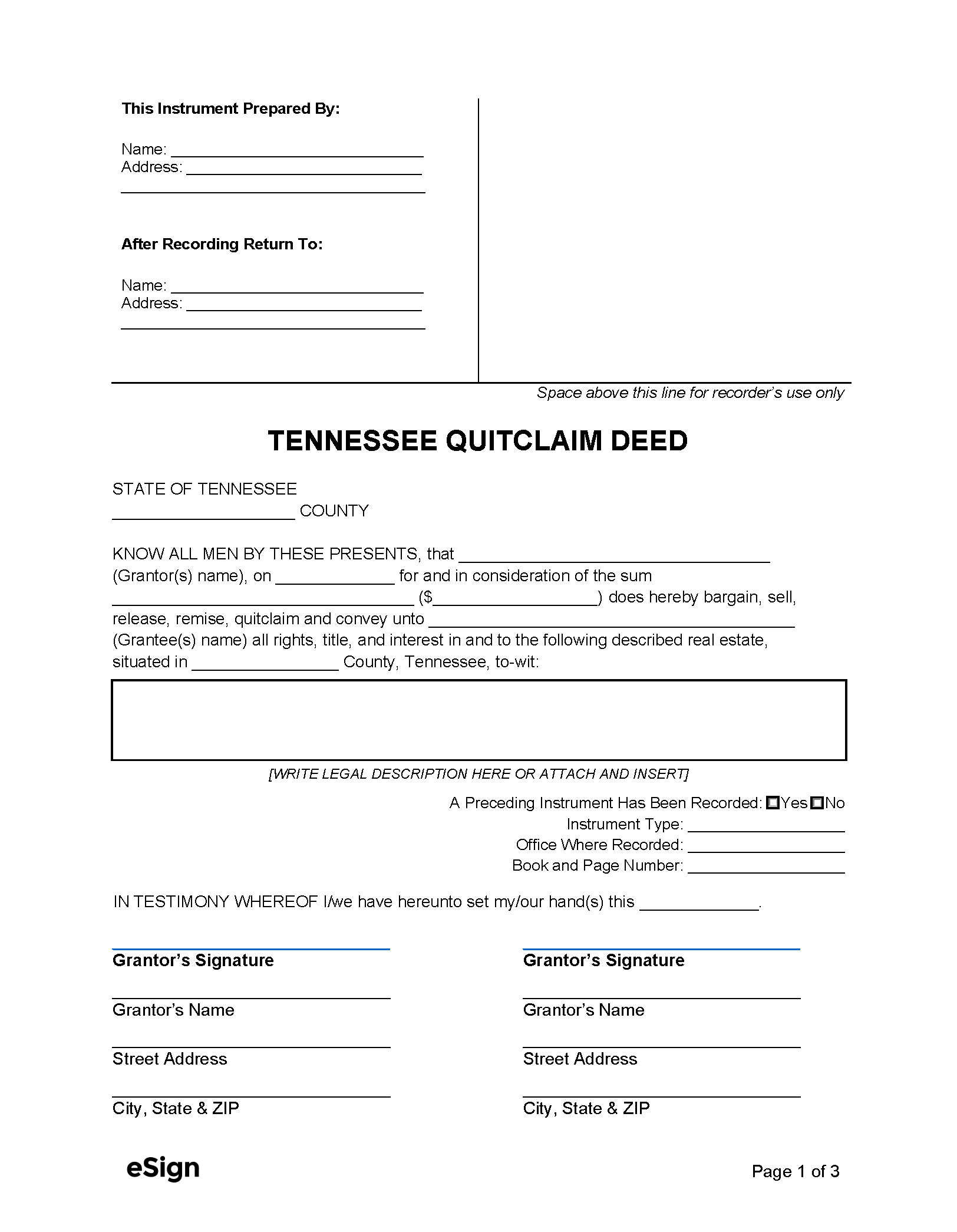 Quit Claim Deed – Does not certify the grantor as the title holder or provide security against title encumbrances. Quit Claim Deed – Does not certify the grantor as the title holder or provide security against title encumbrances.
|
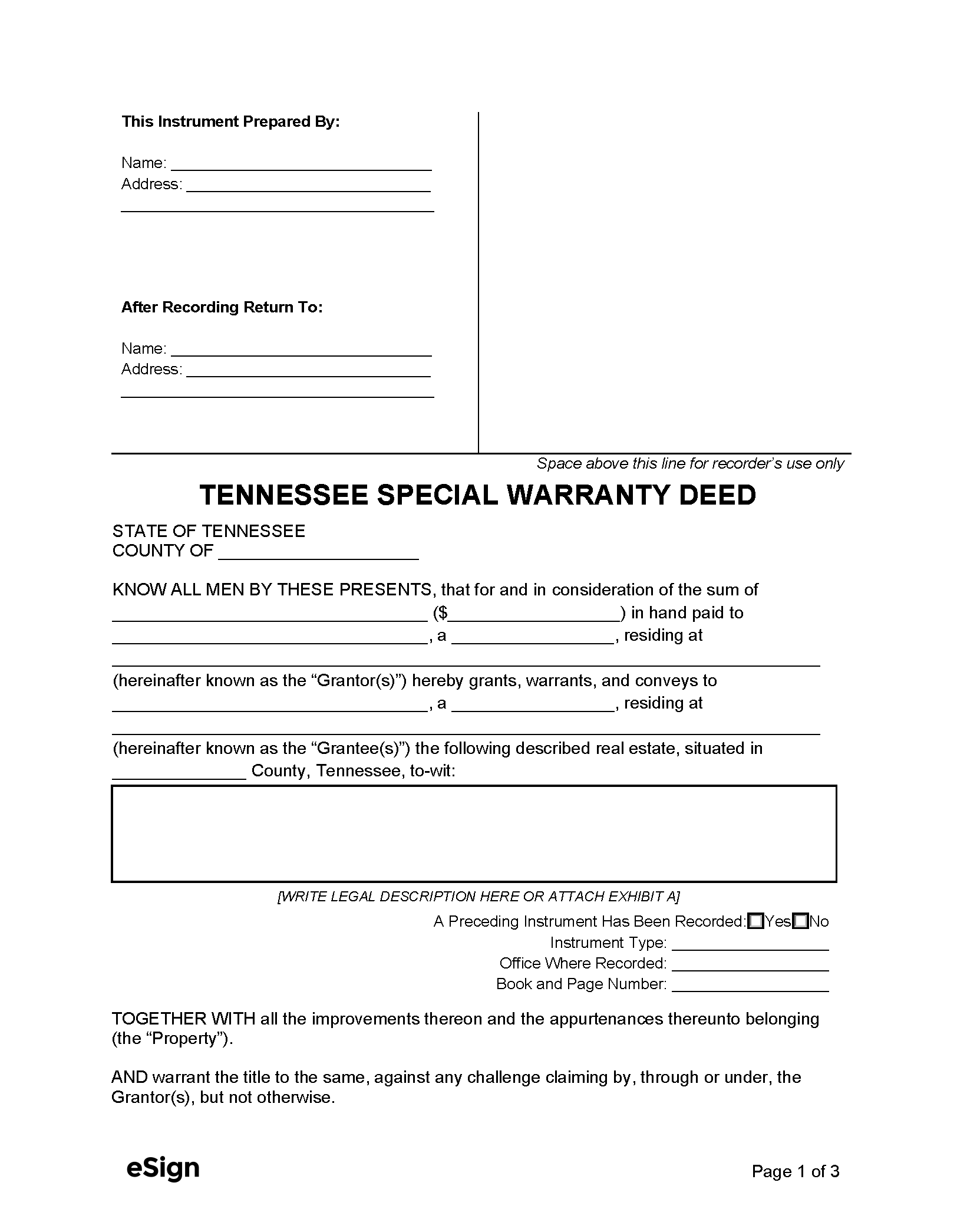 Special Warranty Deed – Holds the grantor responsible for title encumbrances that originated during their ownership of the property. Special Warranty Deed – Holds the grantor responsible for title encumbrances that originated during their ownership of the property.
|
Recording
Signing Requirements – Tennessee deeds need to be signed by the grantor and notarized.[3]
Where to Record – Once executed, a deed must be recorded by the Register of Deeds in the county where the property is located.[4]
Cost – $12 for the first two pages, $5 for each additional page (as of this writing)[5]
